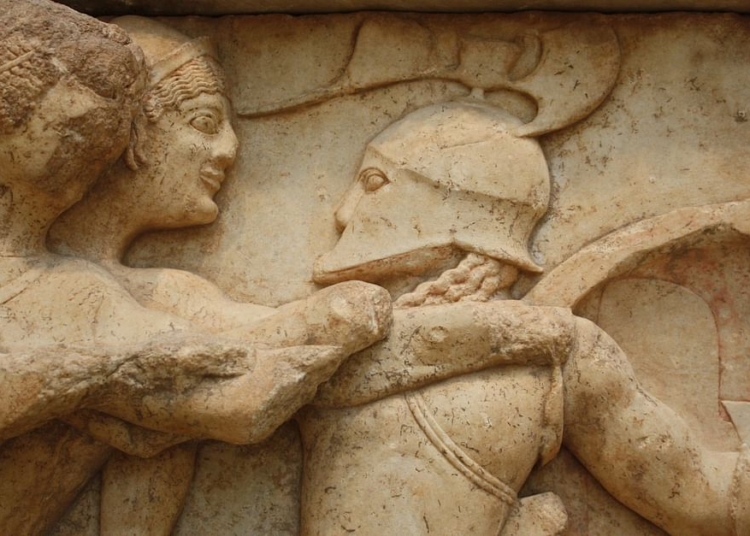This content provides an introduction to the military might of ancient Greece, specifically focusing on the Spartan warfare. The Spartans were known for their superior military strength and disciplined warriors. This article explores the military strategies, training, and equipment employed by the Spartans, highlighting their dominance in ancient Greek warfare. The Spartan army, also known as the hoplites, formed the backbone of their military and consisted of highly disciplined and skilled citizen-soldiers. The training and education of Spartan warriors began from a young age, and their battle tactics involved the use of the disciplined phalanx formation. Their military dominance had a significant impact on ancient Greek history, and their legacy can still be seen in military institutions today.
Spartan Warfare: The Military Might of Ancient Greece
Introduction
Ancient Greece was home to various city-states, each with its own unique culture and military traditions. Among these city-states, Sparta stood out for its superior military might and disciplined warriors. The Spartans were renowned for their unwavering commitment to warfare, valuing martial prowess above all else. This article explores the military strategies, training, and equipment employed by the Spartans, shedding light on their dominance in ancient Greek warfare.
The Spartan Army
The Spartan army, also known as the hoplites, formed the backbone of their military. Consisting of citizen-soldiers, the Spartan army was highly disciplined and extremely skilled in combat. Every Spartan male was expected to serve in the military from a young age, undergoing rigorous training to become a capable warrior.
Training and Education
The training of Spartan warriors began in infancy. Boys were raised to be future soldiers, and at the age of seven, they were sent to state-run military schools known as “agoge.” Here, they were subjected to a harsh regime of physical and mental training. The boys were taught survival skills, endurance training, weapons handling, and discipline. Fierce competitiveness was encouraged, and harsh punishments were meted out for any signs of weakness.
At the age of 20, Spartan males entered full-time military service, forming the hoplite ranks. The successful completion of the agoge ensured that Spartans were not only physically strong but also mentally resilient, willing to take orders without question, and prepared to sacrifice their lives for the state.
Battle Tactics and Strategies
Spartan warfare was characterized by its disciplined phalanx formation. The hoplites would fight in close ranks, their shield overlapping to create an impenetrable wall. Each Spartan warrior was armed with a spear, a short sword called a xiphos, a round shield known as an aspis, a Corinthian-style helmet, and a bronze cuirass for protection.
One of Sparta’s most famous military strategies was the use of the “phalanx.” This battle formation involved arranging the hoplites into a dense formation, presenting an intimidating and impenetrable mass of shields and spears to their enemies. The phalanx relied on cohesion and teamwork, with every soldier moving in unison as a single unit. This formation gave the Spartans a significant advantage on the battlefield, rendering them nearly invincible against less disciplined opponents.
The Legacy of Spartan Warfare
Sparta’s military dominance left an indelible mark on ancient Greek history. Their commitment to military strength played a crucial role in establishing Sparta as a dominant power in the region. The Spartans’ rigorous training program and disciplined fighting style inspired fear and admiration among their adversaries.
The militaristic culture of Sparta continued to influence military strategies throughout ancient Greece, even after its eventual decline. The Spartan system embodied the ideals of honor, courage, and sacrifice, and its legacy can still be seen in military institutions today.
Conclusion
The Spartans’ military might in ancient Greece was unparalleled. Their unwavering dedication to warfare, rigorous training, and disciplined battle tactics made them a force to be reckoned with. The influence of Spartan warfare extended far beyond their city-state, greatly shaping the military strategies and cultures of subsequent civilizations. The legacy of Sparta’s military prowess remains a testament to the effectiveness of strong discipline and unwavering commitment to martial strength.












